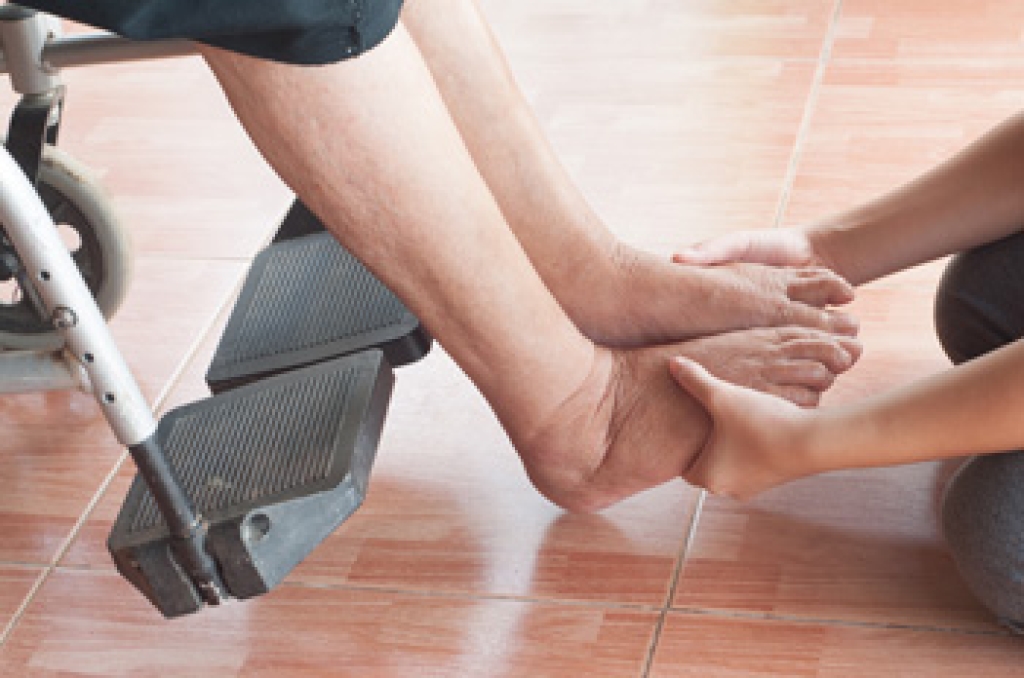People with diabetes can often lose feeling in their feet and the ability to heal ordinary cuts, abrasions or pressure points. This can lead to the development of non-healing wounds and far more serious complications. Foot care can help the diabetic keep their feet healthy and protected. The best way for diabetics to take care of their feet is by wearing quality shoes that fit perfectly and refraining from going barefoot — even in the house. Daily foot inspections are also a must in order to spot anything unusual. If any abrasion, discoloration, redness or purple area is detected, it is suggested that you seek the treatment of a podiatrist as soon as possible to avoid it festering and turning into a wound. For detailed information on diabetic foot care as well as regular foot checkups, please schedule an appointment with a podiatrist.
Diabetic foot care is important in preventing foot ailments such as ulcers. If you are suffering from diabetes or have any other concerns about your feet, contact Warren Levy, DPM from Armitage Podiatry Center. Our doctor can provide the care you need to keep you pain-free and on your feet.
Diabetic Foot Care
Diabetes affects millions of people every year. The condition can damage blood vessels in many parts of the body, especially the feet. Because of this, taking care of your feet is essential if you have diabetes, and having a podiatrist help monitor your foot health is highly recommended.
The Importance of Caring for Your Feet
- Routinely inspect your feet for bruises or sores.
- Wear socks that fit your feet comfortably.
- Wear comfortable shoes that provide adequate support.
Patients with diabetes should have their doctor monitor their blood levels, as blood sugar levels play such a huge role in diabetic care. Monitoring these levels on a regular basis is highly advised.
It is always best to inform your healthcare professional of any concerns you may have regarding your feet, especially for diabetic patients. Early treatment and routine foot examinations are keys to maintaining proper health, especially because severe complications can arise if proper treatment is not applied.
If you have any questions please feel free to contact our office located in Chicago, IL . We offer the newest diagnostic and treatment technologies for all your foot and ankle needs.

 Plantar fasciitis
Plantar fasciitis


